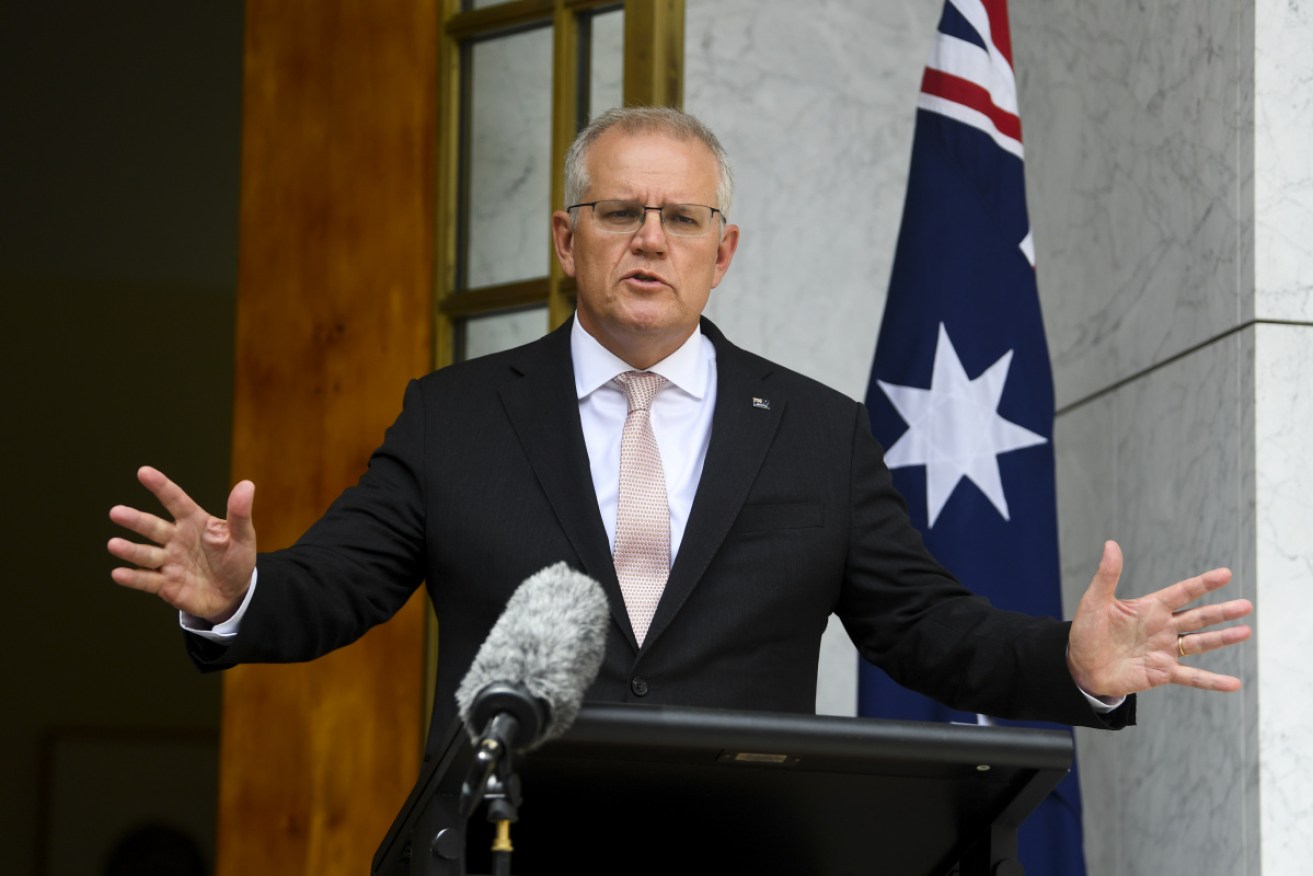‘Near impossible’: The challenge that could derail Scott Morrison’s Omicron workforce plans


Scott Morrison has touted eased isolation rules to address staffing shortages, but businesses say it is unlikely to work without access to RATs. Photo: AAP
A federal government plan to fix the Omicron staffing crisis by easing isolation rules for workers in critical industries will fail unless the supply of rapid antigen tests is massively expanded, businesses have said.
After a week of crisis meetings in Canberra regarding shortages of food and other essentials across Australia, Prime Minister Scott Morrison unveiled relaxed quarantine rules on Thursday to address the supply-chain crunch.
It will see millions of workers across the food, transport, health, energy, education, financial services and construction industries allowed to skip isolation if they’re a asymptomatic close contact of a COVID-19 case.
It’s hoped this will help supermarkets to restock their shelves, councils to empty the bins on time and some restaurants to re-open their doors.
But because each worker must do at least three negative rapid antigen tests (RATs) over a six-day period to be allowed to work, businesses fear there won’t be enough COVID-19 tests for the plan to work in practice.
Australia is currently navigating a severe shortage of RATs, with consumers and independent businesses alike unable to source affordable tests, despite the Morrison government’s new plan relying heavily on their routine use.
Jackson Meyer, chief executive of freight forwarding firm Verus Global, said businesses in his industry have extremely limited access to RATs.
“I’m not sure [the plan] makes that much sense,” Mr Meyer told TND.
“It’s near impossible to find any tests. Are they expecting us to send out three to four staff per day to go and find RAT tests?
“It’s already like finding a needle in a haystack.”
Millions of tests needed
Tony Ingpen, an independent supermarket owner in Victoria, said he has not been able to source any rapid antigen tests, despite his business needing them to help staff return to work amid the Omicron supply chain crunch.
“[We’re] getting 30 or so phone calls looking for them everyday,” he said.
Tweet from @thatsferntastic
Treasury secretary Steven Kennedy told a meeting of national cabinet on Thursday that up to 10 per cent of Australia’s workforce may be out of commission in the coming weeks as Omicron infections rise rapidly.
That’s equivalent to around 1.3 million workers, based on ABS figures.
The industries that national cabinet has carved out for the eased isolation rules represent an estimated 60 per cent of this workforce, according to TND’s analysis of the ABS’s detailed labour force data from November.
This means millions of RATs are likely to be needed, as at least three tests will be required per worker designated as a close contact, based on protocols published by the federal government on Thursday.
Mr Morrison said on Thursday that larger retailers like Woolworths and Coles have been able to access RAT tests, but this also means firms are in competition with one another to secure access to testing for workers.
Alexi Boyd, chief executive of the Small Business Council, said there aren’t enough RATs for many businesses to utilise the eased rules to address worker shortages that are creating food supply issues across the nation.
‘They don’t exist’
“The word RAT appears in a lot of the requirements,” Ms Boyd said, adding that for many small businesses “they don’t really exist yet.”
“Implementing rapid antigen testing isn’t just a matter of switching on a light,” she noted.
Mr Morrison said on Thursday that acting small business minister Anne Ruston is working with the small business sector to improve test access.
But Ms Boyd said while the Small Business Council has aired its concern about RAT access, there hasn’t yet been consultation with the minister about a plan to ensure smaller businesses can regularly access tests.
“We need solutions to make them [RATS] freely available,” she said.
Other employer groups familiar with the talks said the government has resisted plans to expand regular testing to the entire workforce because it would require upwards of 60 million tests to be administered weekly.
That’s far more than currently available, with the government having ordered just 160 million RATS – set to arrive over the coming weeks.
Global competition for rapid tests is also heating up, with US President Joe Biden directing an order of 500 million RATs overnight on Friday.







